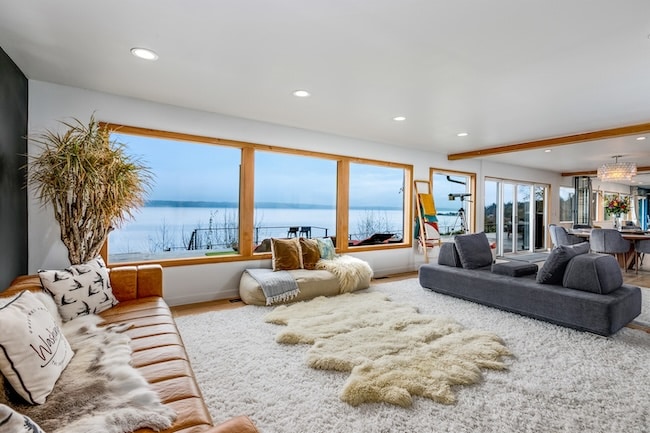In recent years, short term rentals have become a popular choice for travelers seeking unique and cost-effective accommodation options. Whether you’re a seasoned host or new to the rental scene, understanding the best practices for managing a short-term rental can make a significant difference in your success.

Understanding Your Market
Before diving into the world of short term rentals, it’s crucial to understand your target market. Conducting market research will help you identify the preferences and needs of potential guests. Consider factors such as location, local attractions, and seasonal trends to tailor your rental offering accordingly.
Creating an Inviting Space
Your rental space should be welcoming and comfortable for guests. Focus on creating a clean and well-maintained environment. Invest in quality furnishings and amenities that enhance the guest experience. A well-thought-out design can leave a lasting impression and encourage positive reviews.
The Importance of Cleanliness
Cleanliness is paramount in the rental industry. Guests expect a spotless environment upon arrival. Implement a rigorous cleaning routine, and consider hiring professional cleaning services if necessary. Cleanliness not only ensures guest satisfaction but also contributes to positive reviews and repeat bookings.
Essential Amenities
Providing essential amenities can set your rental apart from the competition. Consider offering items such as high-speed internet, comfortable bedding, and a fully equipped kitchen. These small touches can greatly enhance the guest experience and encourage positive reviews.
Effective Communication
Clear and timely communication with guests is vital. Respond promptly to inquiries and provide detailed information about your rental property. Establishing open lines of communication builds trust and helps address any concerns or issues that may arise during a guest’s stay.
Setting Clear Rules and Expectations
To ensure a smooth experience for both hosts and guests, establish clear rules and expectations. Outline house rules, check-in/check-out procedures, and any specific guidelines guests should follow. This helps prevent misunderstandings and ensures a pleasant stay for everyone.
Leveraging Technology
Embrace technology to streamline your rental management process. Utilize online platforms to manage bookings, communicate with guests, and collect reviews. Additionally, consider implementing smart home technologies to enhance security and convenience for guests.
Utilizing Rental Management Software
Rental management software can simplify the booking and reservation process. These tools allow you to manage multiple listings, track availability, and automate communication with guests. By leveraging technology, you can save time and focus on providing exceptional service.
Pricing Strategies
Setting the right price for your rental is crucial for attracting guests and maximizing revenue. Conduct market research to determine competitive pricing in your area. Consider factors such as location, seasonality, and amenities when setting your rates. Additionally, offering special discounts or promotions can help attract guests during off-peak times.
Dynamic Pricing
Implementing dynamic pricing strategies allows you to adjust rates based on demand and availability. This approach helps optimize your rental’s occupancy and revenue. Utilize pricing tools or software to automate price adjustments and stay competitive in the market.
Handling Guest Reviews
Guest reviews play a significant role in the success of your rental. Encourage guests to leave reviews by providing exceptional service and a memorable experience. Respond promptly and professionally to both positive and negative reviews. Addressing feedback demonstrates your commitment to guest satisfaction and helps build trust with potential guests.
Dealing with Negative Reviews
Negative reviews are inevitable, but how you handle them can make a difference. Respond calmly and professionally, addressing any concerns raised by the guest. Offer solutions or compensation when appropriate. This shows your dedication to improving the guest experience and can potentially turn a negative situation into a positive one.
Legal and Regulatory Considerations
Complying with local laws and regulations is essential for operating a successful short term rental. Familiarize yourself with zoning laws, licensing requirements, and tax obligations in your area. Ensuring legal compliance not only protects you from potential penalties but also provides peace of mind for your guests.
Insurance and Liability
Securing appropriate insurance coverage is crucial for protecting your property and guests. Consider obtaining homeowner’s insurance that covers short-term rentals. Additionally, review your liability coverage to ensure it adequately addresses potential risks associated with hosting guests.
Optimizing Your Listing
Your rental listing is your first impression on potential guests. Take high-quality photos that showcase your property and highlight its unique features. Write a compelling description that accurately represents your rental and its amenities. An optimized listing increases visibility and attracts more bookings.
Using Keywords Effectively
Incorporate relevant keywords in your listing title and description to improve search visibility. Research popular keywords used by travelers searching for rentals in your area. Utilizing keywords effectively can boost your listing’s ranking on rental platforms and increase exposure to potential guests.
Building a Strong Online Presence
Establishing a strong online presence is crucial for attracting guests. Create a professional website or utilize social media platforms to showcase your rental property. Share engaging content, such as travel tips and local attractions, to engage with potential guests and build a loyal following.
Engaging with the Community
Engage with the local community to enhance the guest experience. Provide guests with recommendations for local restaurants, attractions, and events. Partner with local businesses to offer exclusive discounts or packages for guests. Building connections within the community can lead to positive word-of-mouth referrals and repeat bookings.
Adapting to Changing Trends
The rental market is constantly evolving, so it’s important to stay informed of industry trends and adapt accordingly. Keep an eye on emerging technologies, guest preferences, and market demands. By staying ahead of the curve, you can position your rental property for long-term success.
Embracing Sustainable Practices
Many travelers are seeking eco-friendly accommodations. Consider implementing sustainable practices, such as energy-efficient appliances and recycling programs, to attract environmentally conscious guests. Embracing sustainability not only benefits the environment but also enhances your rental’s appeal to a growing segment of travelers.
Conclusion
Operating a successful short term rental requires a combination of effective strategies and a commitment to guest satisfaction. By understanding your market, creating an inviting space, leveraging technology, and staying informed of industry trends, you can ensure a positive and memorable experience for your guests. Implementing these best practices will not only enhance your rental’s reputation but also contribute to its long-term success.

FAQ
What are the key factors to consider when setting rental prices?
Consider factors such as location, seasonality, and amenities when setting rental prices. Conducting market research and utilizing dynamic pricing strategies can help optimize your rental’s occupancy and revenue.
How can I improve guest reviews for my rental?
To improve guest reviews, focus on providing exceptional service and a memorable experience. Encourage guests to leave reviews, and respond promptly and professionally to both positive and negative feedback.
What legal considerations should I be aware of for short term rentals?
Ensure compliance with local laws and regulations, including zoning laws, licensing requirements, and tax obligations. Obtaining appropriate insurance coverage is also crucial for protecting your property and guests.
This article contains affiliate links. We may earn a commission at no extra cost to you.

